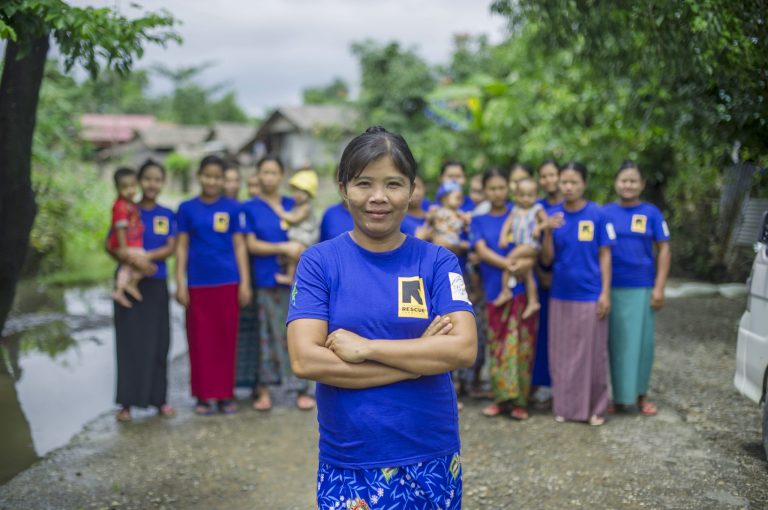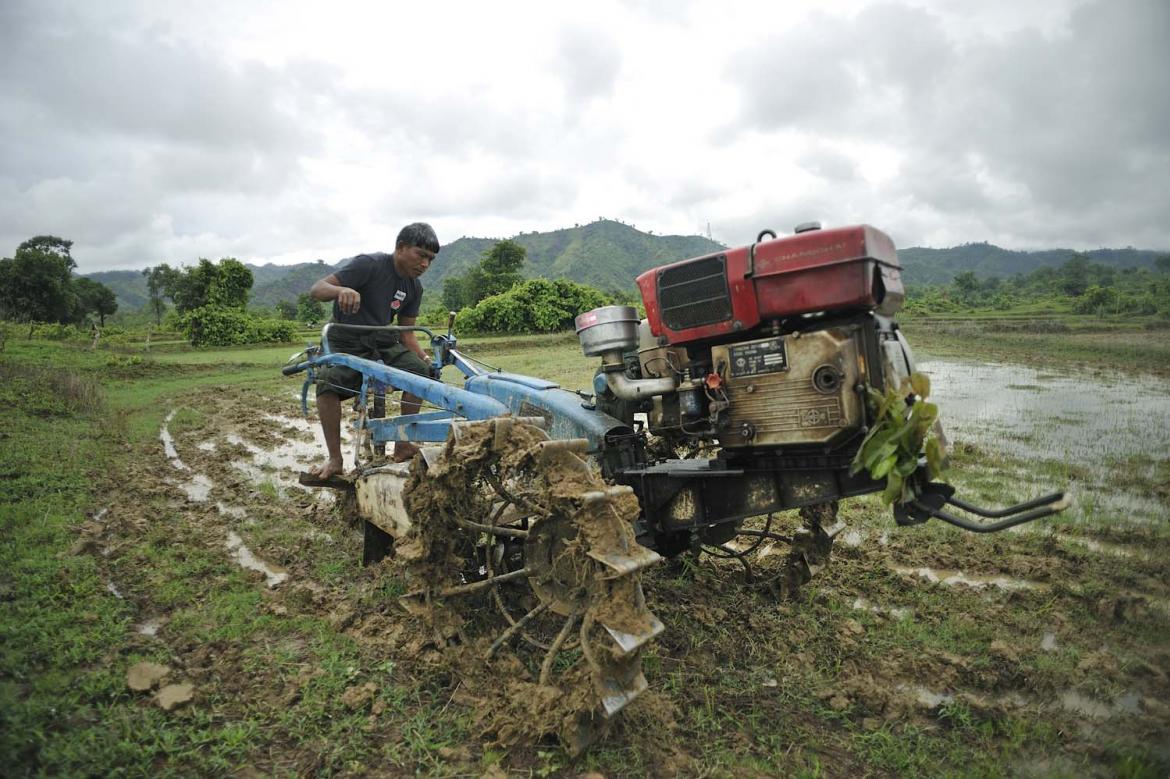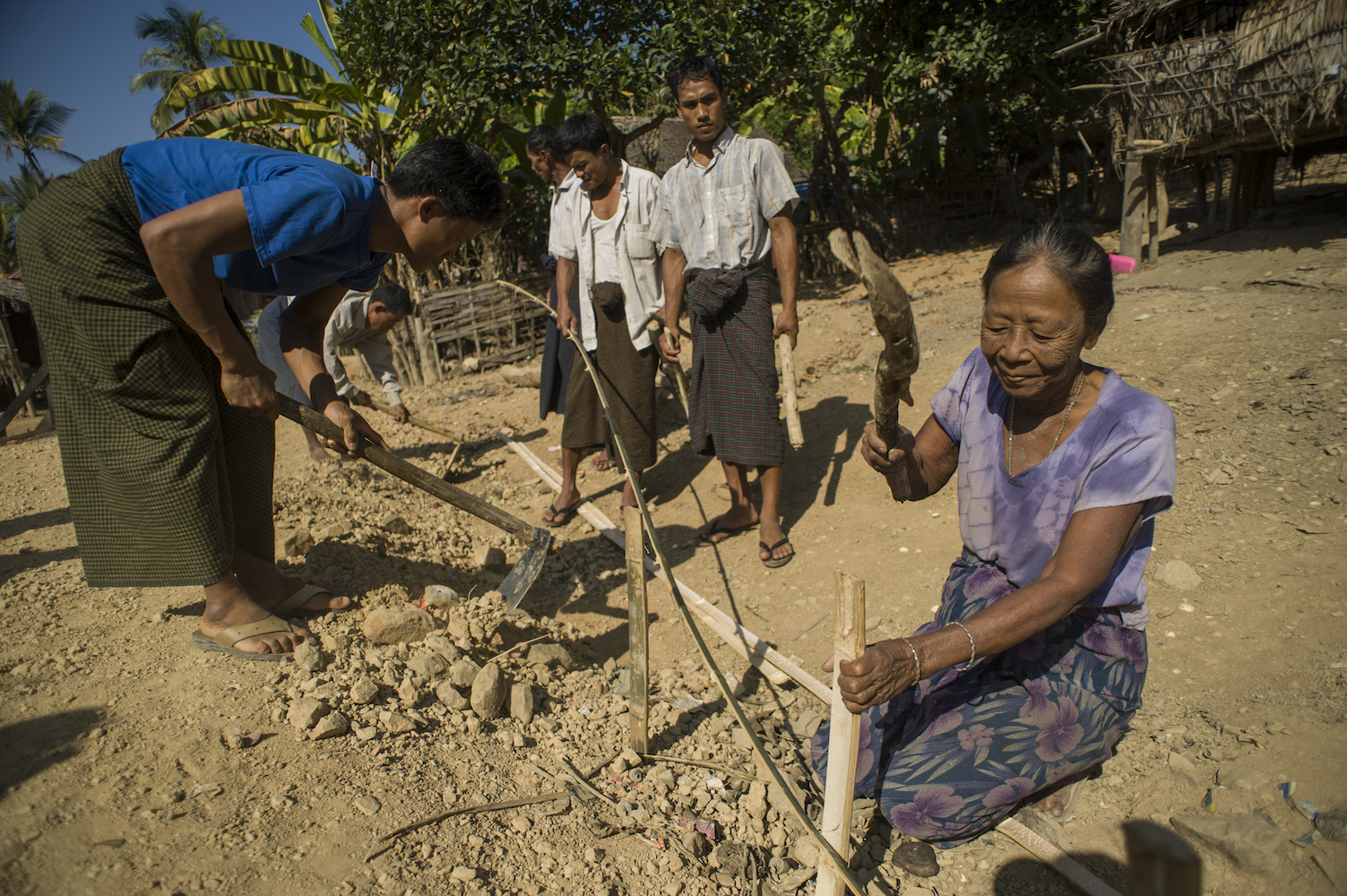In remote Kyaukphyu Township, members of local fishery groups are anxiously waiting to hear the Pyidaungsu Hluttaw’s decision on a draft law that could ensure the sustainable management of fisheries.
By JENNIFER MACINTYRE | TAT LAN
FISHER-FOLK in Rakhine State know their lives, their livelihoods and the future of their villages lies with their ability to restore their fish stocks, which have reportedly depleted by 80 percent in the past 10 years.
U Kyaw Soe, leader of the Thea Chaung Fishery Co-management Group (FCM), points to the sea bass breeding grounds his group is protecting with waterfront signage indicating that it is a legally demarcated “No Fishing Zone”.
He is anxious to ensure that U Win Myint and U Khin Myo Win, who are members of the Amyotha Hluttaw committee that is drafting a new marine law, appreciate his community’s commitment to the conservation of their fishery. The Amyotha Hluttaw is the upper house of the Pyidaungsu Hluttaw, Myanmar’s national parliament.
He draws their attention to some of the 230,000 mangrove trees the local FCM groups have planted on the Bay of Bengal coastline. “We have planted around the no-fishing zones, so fish can breed undisturbed,“ he says.
Kyaw Soe belongs to one of 10 FCM Groups in Kyaukphyu Township supported by Better Life Organization that are advocating for the sustainability and management of their fishery resources.
The Tat Lan FCM project spawned out of the successful Rakhine State Freshwater Fishery Law, which recognised the indigenous knowledge of small-scale fishers and their right to protect their resource in partnership with the government and the Department of Fisheries.
To fully understand their role as protectors of their marine resource, FCM groups kept inventories of their harvests. They mapped where fish breed, fish travelling patterns and mangrove ecosystems. In the process, they learned that a female fish lays 200,000 eggs each season, and one acre of mangroves can support the development of 280 kilograms (616 pounds) of fish, shrimp and prawn.
Empowering Fishers
Better Life Organization built the capacity of fishing communities to advocate for their futures at workshops attended by members of the Union and Rakhine State parliaments, as well as representatives of the Departments of Fisheries, Department of Cooperatives, General Administration Department and the Rakhine Fishery Partnership. At the final workshop in February, fisheries workers explained to six members of the Amyotha Hluttaw Agriculture, Livestock and Fishery Committee about the financial difficulties that sustainable fishing was creating.
“We want to protect our fishery and the mangroves, but we need support from the government to compensate fishing families for lost income during the three-month ban on fishing. We know the importance of mangroves for fish breeding, but the community needs wood for cooking. We need to find alternative cooking fuels, so we can follow the rules,“ said Kyaw Soe.
img_3778.jpg

title=
On behalf of their families, the FCM groups made a plea for access to government development funds, so they can invest in alternative food-related livelihood activities to feed their families during the closed fishing season.
The Thea Than fishery group presented evidence of fishermen who “fence net” coastal areas, thereby threatening the sustainability of their fisheries. While they want a legal means of stopping this practice, U Kyaw Win also called for action against illegal inshore trawlers that destroy fishermen’s nets with impunity.
“We want to police a two-mile [3.2-kilometre] offshore protection zone for the coral reef and our coastline,” he said.
BLO programme manager Dr Win Htut said it is possible to police such a protection zone provided there is cooperation between the government, local authorities, the Department of Fisheries and the private sector.
Legal framework
How have community fishers become empowered to influence laws that will impact on their futures? Mr Rick Gregory, an adviser to the BLO from the international non-profit research organisation WorldFish, attributes their achievements to the legal framework that BLO established. Each FCM group, with their own rules and regulations, presented evidence of their commitment to no fishing seasons, the use of legal fishing equipment, and protection for threatened fish and mangrove ecosystems. This qualified them for registration with the Union Department of Fisheries, giving each group legal authority over the governance of their fishery resource.
“This is the cornerstone of Fishery Co-management,“ Gregory said.
He added that the consultative approach taken by the parliamentary drafting committee showed a fundamental shift in the way laws are drafted in Myanmar.
“Laws in Myanmar used to be drafted behind closed doors. This committee has come to consult with and hear the challenges people face. There is a fundamental, basic democratic principle in action here. This is very exciting.”
The draft of the Marine Fisheries Law legislates for community fishery associations to co-manage inshore fishing by monitoring, supervising and educating others about the need to protect the fishery resource while allowing only legal fishing practices.
To reduce poverty and encourage food security, the drafted law recommends the Department of Fisheries coordinates with United Nations agencies to provide grants for members of registered associations so they can build sustainable futures.
This will bring relief to Kyaw Soe and his fellow Rakhine State fishermen who advocated passionately on behalf of their families and an estimated four million small-scale fisher-folk who depend on income from fisheries products.
BLO facilitated the Fishery Co-management pilot as a project under the LIFT-funded Tat Lan programme in Rakhine State.







